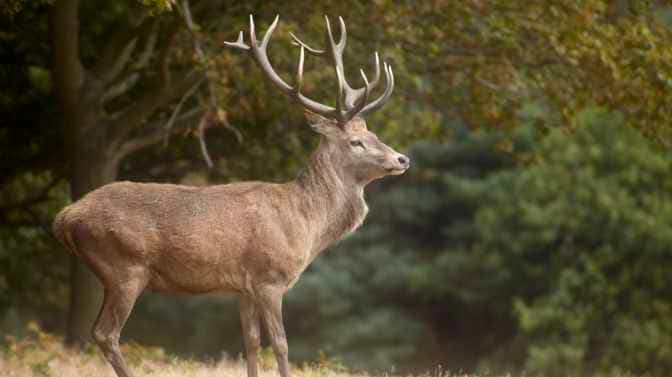As an avid deer hunter and outdoor enthusiast, I’ve spent countless hours sitting in treestands observing the wildlife around me. During these long waits, one common sight is busy squirrels scurrying through the leaves, sometimes creating quite a ruckus. This led me to ponder: do squirrels scare deer away?
At first glance, it seems plausible that deer may be startled by the sudden movements and noisy chatter of squirrels. However, when examining the evidence, the reality is more nuanced. Here I’ll explore the interactions between these two woodland creatures and uncover the truth behind this wildlife relationship.
Observing Squirrel and Deer Behavior in Shared Habitats
In many forested areas across North America, habitats of squirrels and deer overlap. It is common to find both species coexisting in the same ecosystem.
Deer exhibit cautious behavior, keeping vigilant for potential threats. Squirrels, on the other hand, will enthusiastically go about their business of collecting acorns and nuts with quick, darting motions.
At times, squirrels do emit alarm calls, such as when warning others about predatory hawks or cats. However, extensive observation indicates that deer mostly ignore these calls rather than perceive squirrels as a direct threat.
The presence of active and vocal squirrels does not appear to deter deer from entering or remaining in an area In fact, I’ve witnessed deer grazing calmly just yards away from busy, chattering squirrels
Interactions Between Squirrels and Deer
While squirrels and deer can occupy the same habitat, they utilize resources in different ways. This reduces competition between the species.
-
Squirrels consume nuts, seeds, buds, and occasionally insects. Deer browse on various shrubs, trees, grasses, and herbaceous plants.
-
Squirrels play an important role in dispersing and burying nuts and seeds. This caching behavior can facilitate reforestation.
-
Both squirrels and deer will take advantage of seasonal acorn crops as a rich food source. However, squirrels store many acorns to eat later, while deer consume them immediately.
-
Squirrels are omnivorous and eat a broad variety of plant materials as well as fungi, insects, eggs, and even small vertebrates on occasion. Deer are obligate herbivores, only consuming plant matter.
Overall, there is minimal overlap in the diets and foraging patterns of squirrels versus deer. This allows them to effectively share resources within one ecosystem.
Factors Influencing Deer Behavior
While squirrels go about their activities without alarming deer, other factors can impact deer behavior:
-
Predator presence – Deer are highly attuned to the scent and sounds of key predators like coyotes, wolves, bears, and mountain lions.
-
Hunting activity – Deer demonstrate wariness during hunting seasons, particularly areas and times with increased human presence.
-
Food availability – When natural food sources become scarce, deer will venture outside their typical ranges to find sustenance.
-
Weather conditions – Inclement weather may result in deer seeking sheltered areas away from regular feeding sites.
-
Mating behaviors – During the rut, bucks become single-mindedly focused on mating rather than assessing threats.
These influences have a far greater effect on deer behavior than simply coexisting with small, non-threatening squirrels.
Benefits Squirrels Can Provide for Deer Hunters
Not only are squirrels unlikely to scare away deer, their presence can actually be advantageous for deer hunters in some circumstances:
-
Squirrel alarm calls may alert deer to lurking predators like coyotes and bobcats nearby. This can lead deer to avoid those high-risk zones.
-
Busy squirrel activity serves as a distraction that can cover slight sounds or movements from hunters without alarming deer.
-
Numerous squirrels in an area indicates an ample food supply, which will attract deer.
-
Squirrels bury nuts and acorns, planting new trees that can become future deer habitat.
Hunters may find their odds of success improve by taking note of active squirrels and what their presence signifies about the local environment.
The Truth Behind the Myth
The notion that squirrels deter deer is a common misconception not supported by extensive behavioral observations and scientific evidence. While an abundance of any wildlife species can potentially impact an ecosystem, squirrels tend to have minimal effects on deer populations and habits.
In fact, the lively presence of squirrels and deer peacefully coexisting is an indicator of a healthy, balanced habitat. Attempting to eradicate either species would likely do more harm than good.
Rather than viewing common wildlife like squirrels as pests or threats, responsible stewards should strive to understand the intricate connections between all the creatures residing in the forests, fields, and backyards we share. Doing so provides key insights into sustaining vital, thriving ecosystems that support deer, squirrels, and humans alike.
The next time you spy energetic squirrels during your hunt, recognize their industrious activities as another marvel of nature to appreciate. Then continue focusing your efforts on outsmarting those wily white-tailed deer!
How Deer Use Squirrels
People who have seen a lot of deer in the woods have probably noticed that whenever a squirrel makes a noise, the deer stops what he’s doing and looks in that direction. Squirrels don’t bark randomly; there’s always a threat, even if it’s just another squirrel in their territory. Any way you look at it, if you bother a squirrel, any deer nearby is now looking for trouble. Conversely, squirrels bark at deer as well as people. Several times I’ve found deer in places where I’ve heard a squirrel fire up. So don’t be afraid to investigate random squirrel barks.
Like elk, big bucks enjoy the security of bedding in thick, over-grown conifer forests. The problem with conifers is the abundance of squirrels and chipmunks that inhabit them. Like most animals, squirrels are territorial. Long ago I noticed that the whole conifer forest is gridded in squirrel territory. As you walk through the woods, you’ll probably keep running into barking squirrels after you leave one behind.
Early in the season, squirrels aren’t too noisy, but it gets worse in September as they start to gather food for the winter (pinecones). In my neck of the woods, August 25th is the beginning of mayhem.
If there are a lot of chipmunks in your area, you may notice that they are just as bad. They make a lot of scary noises that deer can hear. One time I stumbled upon a crabby 4×4 buck feeding off a trail at 15 yards. Immediately, a cantankerous chipmunk situated between us erupted into a machine gun-like, high-pitched chirping fit. The buck stopped feeding and spent the next five minutes scanning the woods for danger. Eventually he marched nervously away. My eight-hour, once-in-a-lifetime mountain goat stalk last year almost failed because of a single chipmunk having a scary fit in a nearby tree.
When you know that squirrels and chipmunks can ruin your bowhunting, what do you do? I’ve tried everything, but here are some tried-and-true tips that might work for you.
Unless you are set up in an ambush, the best thing to do is to get up and move around. Once out of sight, squirrels will soon shut up and go about their business. Fortunately, not all squirrels are bad. Some will even allow your presence, like if they’re too busy gathering pinecones to notice you.
A second option is to wait the squirrel out. Most squirrels will bark for 30 minutes or less. If they do, there will be no deer in the area for sure. After 30 minutes squirrels will tire out and go back to their business. Another effective technique is to walk directly towards the squirrel’s tree. Most squirrels will get nervous as you approach and shut up—but not always. Some just get louder! Fortunately chipmunks are more skittish and scare easily.
As a last resort, feel free to shoot the wretched beast. You don’t necessarily have to kill him, just whiz an arrow past his head. When he realizes he’s in danger, he’ll likely run off. I always carry a cheap aluminum “squirrel arrow” in my quiver because you won’t get your arrow back. I know this because I’ve shot at a lot of squirrels. My Spanish name is actually Squirlero! Okay, it’s not, but it should be.
Again, it depends on the squirrel you’re shooting at. Some just climb higher and bark louder. For this reason, a more lethal method might be in order. I know one hunter who carries a lightweight BB pistol in his pack…just in case.
You will always have a whole hunt fail because of a random tree rat if you hunt for a long time. So be prepared by using the aforementioned squirrel-avoidance techniques. On a side note, I’ve actually eaten more squirrels than the average person. It was a long time ago, but eat them I did. They’re actually quite tasty; like chicken but with a nutty overtone. Bon appétit!.

Keep critters (Squirrels Deer Groundhogs Rabbits) out of the garden & AWAY from your tomatoes!
How do squirrels affect deer hunting?
Squirrels can affect deer hunting by giving away the presence of the hunter. However, deer are generally not troubled by squirrel alarm calls that may indicate predators that attack squirrels and not deer. Sometimes, squirrels can alert hunters to the presence of deer.
Are squirrels destructive?
Although cute from a distance, squirrels can be surprisingly destructive – especially when they set their sights on your home or garden. Squirrels mate and have offspring twice a year, meaning that you could be dealing with a rambunctious family of 2-4 squirrel kits more often than you’d like to!
Do scents keep squirrels away?
Luckily for you, there are a variety of scents that will keep squirrels away and under control. While these tree-dwelling animals might be cute to watch play around among the branches, they can cause a shocking amount of damage to the home and garden. The majority of scents listed above can be found in most home pantries or supermarkets.
Do squirrels eat fences?
Squirrels can be a real nuisance in the garden. They climb and chew and can get through small holes. Instead of a regular fence, you will want a metal fence enclosure so they cannot jump down into the garden or chew through the material. The fence enclosure will also keep out deer and rabbits.

